Customer Services
Copyright © 2025 Desertcart Holdings Limited


Full description not available


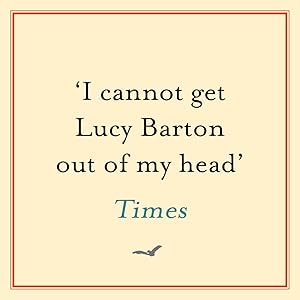
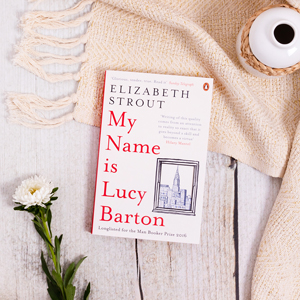
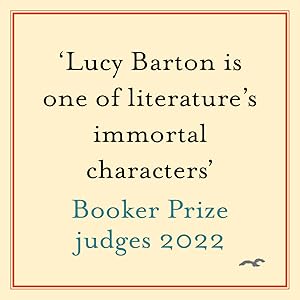
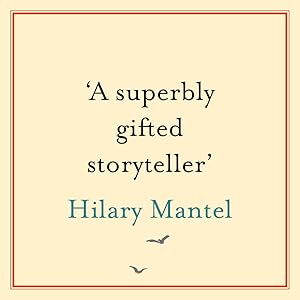
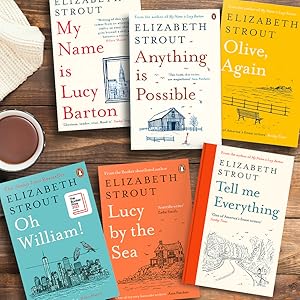
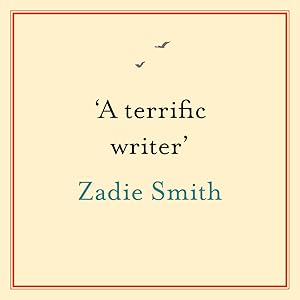
S**.
Bartons’ New York Story
What a lovely, breezy read! This is Lucy Barton and this is the story of her childhood and her life as a grown woman. Lucy is in hospital and her mother comes to visit her and that’s where the story really begins. It is the presence of her mother that takes her back to her home in Illinois. She revisits places, people she had known, the gossips of small town that seemed lost in her New York life. She begins looking into her own marriage, men whom she has admired and disliked, women whom she has loved and not forgotten. and all the kindness and heartlessness she has withstood from people she would never meet again. How common her life was to ours! This was a beautifully written novel. Strout writes with simplicity, with a tone that makes you want to sit down and breathe. That’s what her writing felt like, a breathe of air; you inhale and let go with every turn of the page. In such a small book, the author has said so many things and not for a second making it sound unreal or impossible. It really seemed as though Lucy isn’t fictional. She is real, she is someone you have known but never cared to listen to because your life was busy figuring out your story. It seemed she was a woman you would pass by on the street, or a neighbour looking out the window with a smile to acknowledge a bright, sunny day.
R**A
Used book in Great Condition!
The media could not be loaded. I recieved this book is pristine condition. Although I ordered it secondhand because it was the last one left with no firsthand options, I was very happy with the condition it came in. It has a few dirty patches and it is slightly worn out at the spine, but I think I like that about this book. Great quality and conditions :)
R**N
Unpopular opinion of Lucy Barton
My name is Lucy Barton by Elizabeth Strout, much raved about by all readers did not turn out to be an enjoyable read for me.This is the story of Lucy who has to stay in the hospital for nine weeks. During this period her mother visits her and stays with her although she refuses to meet the son in law. Lucy as she is on the road to recovery amuses herself by thinking of her dysfunctional family, love and friendships, her dented marriage and also her growth as a writer.What I liked : I admire Strout's ability to write about the short life of one's memories and how they alter over time to deviate from the truth. I so enjoyed how two women, Lucy and her mother, who haven't talked to one another in years could bond over neighbourhood gossip.What I disliked: I felt the book did not have enough depth to move me. It was too short and maybe I would have enjoyed it more if it was longer. There were no surprises, no revelations only a reflection of the days gone by which felt a bit dry to me. But perhaps this book would suit those who are looking for these very qualities in their next read.
K**R
My first Strout novel
Strident but tender too. Read it in one sitting. Riveting. Strout picks some heavy topics and goes slightly meta with the writing workshops, but it all comes together beautifully.
A**I
Would recommend if looking for an emotional journey.
A great book on family, the bonding of a mother to her daughter and vice versa and the beauty of staring death.Well, death when seems like appearing at the door is often dreadful if you think of it, but the author presents her view point of how those days made the lady remember her mother, forget her ambitions and all but aspire to be a girl for her mother again. In that bond, nothing ever changes because the acceptance is very pure irrespective of the differences.The way it tells of the drifting apart of relationship, that's very relatable."One can be ready to give up the children one always wanted, one can be ready to withstand remarks about one’s past, or one’s clothes, but then—a tiny remark and the soul deflates and says: Oh.From childhood to ageing,Growing through the pain and suffering,Acknowledging the flaws with beautifully, getting on with trauma."I would recommend a book of such kind, it's slow in pace but engrossing if you are looking for an emotional journey!
C**R
Underwhelming
Wanted to like this so much after all the glowing reviews and admittedly enjoyed small patches but on the whole it felt contrived. The author sighing all over the page, page after page. Wearisome.
C**I
Good but not on the level of 'Olive Kitteridge'
Lucy wakes up in a hospital bed to find her estranged mother next to her. They stay together for a week, and Lucy finds herself reflecting on her childhood and estrangement. Will they be able to work through their issues?Having read 'Olive Kitteridge', I think Elizabeth Strout is one of those writers who works in between words and sentences. The sighs and the pauses. The stiff lips. The silences. The secrets. Between what is said, it is what is not said but implied that conveys more about her characters.The simplicity of her prose disguised a lot of craft. It can be easy to read it and find it underwhelming. I did, too. But her characters hook you when you read. I was in that hospital. I was hoping the mother could just say once that she loved Lucy. I was confused why the husband wasn't coming over to meet often. The absence of the siblings was also strange. I did not get it. Nor was it explained.I know that Lucy Barton is a series now, and this novel is just an introduction to that world. And it did do a good job in capturing my interest. But it left far too much unanswered or unaddressed for me to fall in love with this book. I will read the sequels though.
H**J
Really great !
The book is for a mature reader .. the book itself is very good quality! Amazon books Always have a much better quality !
K**K
A beautifully human story
“Her job as a writer of fiction was to report on the human condition” (p 98), and this is what Elizabeth Strout is pretty good at. In a comparatively small book with comparatively little text she lets her protagonist, Lucy Barton, look back on a time she had to spent in hospital, away from her two little children, away from her husband and her everyday duties. Her situation of having to stay in a hospital gives her room and time for reflection, but also for rare talks with her mother, who comes to visit her for five days. It’s obviously meant to be a story – a very troubled story – of a daughter and her mother, who were never close or dear with another. And still, there is still love and there’ll always be love. Strout manages to say the important things and, at the same time, leaves many things unsaid because they cannot be said due to the distance between mother and child. She astonishes the reader with this strange, distant relationship without judging the mother or leaving her unlikeable. Many of Lucy’s thoughts are being shared, concerning her writing (“And I thought: I will write and people will not feel so alone!” p 24, “Never ever defend your work.” p 107), her insecurities (“As has often been the case with me, I began to dread this in advance.” p 75), her motherhood or her marriage, which she knows at the point of writing will not last. (“There are days when I feel I Iove him more than I did when I was married to him, but that is an easy thing to think – we are free of each other, and yet not, and never will be.” p 148) They are common thoughts packed in a rather simple, lean language and sentence structure, often written just as she would speak them. And therein lies the beauty for me, because it made it so easy to dive into that world, every now and then recognizing Lucy’s thoughts as my own.
J**D
Beautifully written, understated novel of fractured relationships
Ill in a New York hospital in the mid-1980s, without her husband or her two small daughters, writer Lucy Barton is surprised one day to find her mother has flown in from the Mid-West and is sitting by her bedside. The two haven't spoken in several years, but despite their long period of non-contact, they cautiously reconnect as Lucy drifts in out of consciousness. Lucy's mother's refusal to leave her daughter's bedside suggests maternal devotion - but Lucy's memories of her childhood paint a different picture, a picture of chaotic poverty and erratic, sometimes abusive parenting. Lucy is now a successful writer but back then 'We were oddities,' she says, and the loneliness that resulted is almost palpable: 'In the middle of the cornfields stood one tree, and its starkness was striking. For many years I thought that tree was my friend; it was my friend.'My Name Is Lucy Barton is a short, sparse novel and every word, every incident related is carefully chosen. There's a veil of ambiguity over the whole novel that made me constantly question what I was reading. It's clear that Lucy's mother, Lydia, remembers certain things very differently to the way Lucy does. Was Lucy's childhood really as bad as she believes it to have been, or - as someone who tells stories for a living - is she creating an embellished narrative to express some other, even deeper problem? There's an extra layer of uncertainty, too, as Lucy is looking back on her hospital stay and relating her conversations with her mother to us at a much later date, long after the two children she worries about while in hospital have grown up. We're not just relying on memories: we're relying on memories of memories. What, exactly, are the vague, undiagnosed complications she's suffering after her appendectomy - and is it just a coincidence that, having spent her childhood wary of a volatile, disturbed father, she is almost obsessively attached to the kind, calm and paternal doctor who oversees her care? Lucy may have left behind her traumatic past for New York, comfortable affluence and literary acclaim, but she'll never be able to escape her family's influence completely, and her relationship with her own daughters seems far from clear-cut.It's not often that a novel says so much in so few words. Strout's prose is beautifully economical and Lucy's recollections are shaped by her traumatic experiences, some of which she is clearly repressing, so what's left out is sometimes just as important as what's included. This is a thoughtful exploration of fractured, complicated family relationships and the ripple effect of childhood poverty and neglect through the generations.
A**A
Precisamos falar sobre Elizabeth Strout
Há muito pouco de Elizabeth Strout publicado no Brasil – infelizmente. Apenas seu penúltimo romance MY NAME IS LUCY BARTON (aqui, Meu nome é Lucy Barton, com tradução de Sara Grünhagen), o que é uma pena, pois os leitores brasileiros não estão tendo acesso a uma das maiores escritoras americanas da atualidade. Nem OLIVE KITTERIDGE, ganhador do Pulizer de Ficção em 2009 e base de uma série estrelada por Frances McDormand, ganhou uma tradução no Brasil.A obra da escritora tem ao centro personagens femininas e seus dilemas cotidianos. Há algo em Strout que lembra Alice Munro, embora o cenário seja outro, mas a delicadeza e precisão com que constróis perfis e tramas a partir destes a americana tem em comum com a canadense. O romance Lucy Barton é algo raro no gênero, sempre tão preocupado com a formação de personagens masculinos. Aqui temos um romance de formação que recusa o rótulo e traz como protagonista uma mulher.Narrada pela própria Lucy que tem a vantagem de olhar para o passado e revisitar episódios de sua vida, a trama se passa durante cinco noites nos anos de 1980, quando ela estava num hospital em Nova York, onde tirou o apêndice, mas ainda convalesce de uma doença que os médicos não conseguem diagnosticar. Inesperadamente sua mãe, com quem não fala há anos, aparece no hospital, e isso traz à tona memórias da infância.Os anos de formação da personagem são contados de forma quase factual. Strout não deixa se levar por sentimentalismos, sua precisão ajuda a dimensionalizar Lucy, e sua infância solitária, que, conforme ela confidencia, a levaram a se tornar uma escritora. E isso persiste até essa vida adulta, na qual é divorciada e mãe de duas filhas pequenas. E essa doença misteriosa que a mantém por meses no hospital? Poderia ser algo psicossomático que se cura com a presença da mãe e a reconciliação das duas.Apesar da mãe ser faladora, cheia de histórias sobre pessoas que as duas conhecem, ou conheciam, é nos silêncios que elas se entendem. É quando aquilo que não precisa ser dito emerge que elas podem olhar olhos nos olhos (nem que seja simbolicamente), ver a verdade de uma na outra. Strout parece conhecer isso muito bem. Suas personagens são repletas de nuances, assim como os laços que as une. É também um prazer encontrar um romance sobre a formação emocional e o amadurecimento de uma mulher – atualmente, Elena Ferrante, com seu quarteto napolitano é outra que tem feito isso – num gênero tão dominado pelos ritos de passagem de garotos para homens.
C**E
A Brief History of a Strange Mother and the Daughter Who Escaped Her
There is something so captivating about the voice of Lucy Barton, it made me wish to slow read this novel, as if it were a box of exquisite chocolates that require enormous self-discipline not to finish in one sitting.Lucy Barton is in hospital after an operation and isn’t healing as she should, the very kind Doctor doesn’t understand why, so keeps her under observation.That Lucy finds so many people whose path she crosses in adulthood so very kind or nice, is a telling detail.Her husband, of whom her parents disapprove and have never met, arranges for her mother to visit Lucy, they haven’t seen each in years, but over five days she sits near her bed and they chat as if those years of silence hadn’t been.It’s as if Lucy Barton relives a part of her childhood as an adult, but transplanted to a safe, uneventful place, a room in a hospital where they will not be interrupted, except by the occasional nurses."Then my mother and I talked about the nurses; my mother named them right away: “Cookie,” for the skinny one who was crispy in her affect; “Toothache,” for the woebegone older one; “Serious Child,” for the Indian woman we both liked."Lucy now lives in NY, her parents are from the rural town of Amgash, Illinois, life for them, including her siblings hasn’t changed much, Lucy however liked to stay after school near the warm radiator, doing her homework, reading books. She read her way through school and out of their town, almost by accident, into university and onward to marriage, children and writing stories.Her turning point she wonders, came through a chance encounter with a woman in a dress shop, a writer, in whom she recognises something she can’t quite articulate. She attends one of her workshops and though intending to work on a novel, begins to write sketches of scenes of her mother visiting her in hospital, these are the pages she shares in her private meeting with the author, who gives her this advice:"Then she said, “Listen to me, and listen to me carefully. What you are writing, and what you want to write,” and she leaned forward again and tapped with her finger the piece I had given her, “this is very good and it will be published. Now listen. People will go after you for combining poverty and abuse. Such a stupid word, ‘abuse’, such a conventional and stupid word, but people will say there’s poverty without abuse, and you will never say anything. Never ever defend your work. This is a story about love, you know that. This is a story of a man who has been tortured every day of his life for things he did in the war. This is the story of a wife who stayed with him, because most wives did in that generation, and she comes to her daughter’s hospital room and talks compulsively about everyone’s marriage going bad, she doesn’t even know it, doesn’t even know that’s what she’s doing. This is a story about a mother that loves her daughter. Imperfectly. Because we all love imperfectly. But if you find yourself protecting anyone as you write this piece, remember this: You’re not doing it right.”"Through her writing, her listening to her neighbour Jeremy speak of the necessary ‘ruthlessness’ of the artist, of Sarah Payne’s writing advice to take any weakness in her story and address it head-on, Lucy Burton moves her life and her narrative on from its traumatic past, to a new empowered beginning."But really, the ruthlessness, I think, comes in grabbing onto myself, in saying: This is me, and I will not go where I can’t bear to go – to Amgash, Illinois – and I will not stay in a marriage when I don’t want to, and I will grab myself and hurl onward through life, blind as a bat, but on I go! This is the ruthlessness, I think."Absolutely loved it, hypnotic, slowly affirming a life that can grow and change and evolve out of traumatic experience, that past narratives don’t define future stories, that love is as hardy as a seed that grows out of rock, not impossible to bloom even in the harshest of circumstances.
L**
A good read
I love all of her books, however this one I found a little less interesting than the 'Olive' books. But that is only my personal thoughts. Still beautifully written and enjoyable.
Trustpilot
2 weeks ago
2 days ago